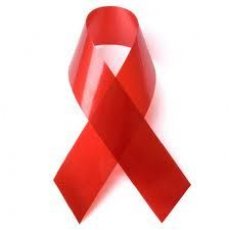Medical expert of the article
New publications
HIV-positive men call on Chinese government to end discrimination
Last reviewed: 01.07.2025

All iLive content is medically reviewed or fact checked to ensure as much factual accuracy as possible.
We have strict sourcing guidelines and only link to reputable media sites, academic research institutions and, whenever possible, medically peer reviewed studies. Note that the numbers in parentheses ([1], [2], etc.) are clickable links to these studies.
If you feel that any of our content is inaccurate, out-of-date, or otherwise questionable, please select it and press Ctrl + Enter.

Three future school teachers have appealed to Chinese Premier Wen Jiabao to end discrimination against people living with HIV after they were denied jobs after being diagnosed with the immunodeficiency virus.
The petition was delivered by mail on Monday to the State Council of the Legislative Affairs Directorate.
The three men filed separate lawsuits against their local governments after provincial education authorities rejected their job applications because mandatory blood tests showed they were HIV-positive, even though they had passed interviews and written tests. They hoped to convince the courts that the law should protect the employment rights of people with HIV and to overturn local rules that prevent HIV-positive people from being hired as government employees.
Two courts in China have ruled against men who sued their governments in Anhui and Sichuan provinces in 2010. In a third lawsuit, filed in Guizhou, the judge told the plaintiff that the court "would not accept the lawsuit and that the plaintiff should ask the local government to resolve the matter," said Yu Fengqiang, a public advocate for people living with HIV.
"We know that in China, a country of 1.3 billion, 740,000 people are infected with HIV. This is a small part of the population," the petitioner said. "Voices in defense of the labor rights of people living with HIV are usually drowned out by a sense of fear of the country's authoritarian laws and authorities. But we also know that the rule of law in the country and the equality of all its people are the basis for the modernization of the state towards democratization. Every citizen of China will undoubtedly benefit from such changes, freed from the fear of being subjected to the threat of illegal deprivation of rights and freedoms."
Beijing was initially slow to acknowledge the country's HIV/AIDS problem, trying to cover it up in the 1990s when hundreds of thousands of poor farmers in rural Henan province were infected through mass blood transfusions.
But since then, the government has stepped up its fight against HIV/AIDS, investing more in prevention programmes, nationwide free access to antiretroviral drugs, and implementing policies to eliminate discrimination.
Currently, the human immunodeficiency virus is spread in the country mainly through sexual contact.
In a country where sex is taboo, discussion of the topic is largely restricted and people with HIV/AIDS are often stigmatized.
Discrimination against people living with HIV, especially in public service, is still a huge problem. According to a study published by the United Nations in May 2011, people living with HIV and AIDS are routinely denied medical care in regular hospitals due to fear and ignorance about the disease.
The petition was sent to the government agency ahead of World AIDS Day (December 1).


 [
[